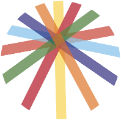Intervention
Following detection activities to identify children with neurodevelopmental disorders (NDD) including autism spectrum disorder (ASD), NAMASTE will link them into three pathways of care. Parent-mediated Autism Social Communication Intervention for non-Specialists – Plus (PASS Plus) or WHO-Caregiver Skills Training (WHO-CST) ASD interventions.
Children with a high likelihood of autism will be offered the Parent-mediated Autism Social Communication Intervention for non-Specialists – Plus (PASS Plus). If global developmental delay and intellectual disabilities are identified, families will be offered the WHO-Caregiver Skills Training (WHO-CST). Children with sensory-motor disabilities will be referred to existing public health facilities.
During the early stages of the project, all the intervention manuals and associated documents were translated and adapted into the local languages of the project – Hindi, Marathi, Nepali, Sinhala and Tamil. This involved receiving feedback from stakeholders to ensure cultural and linguistic relevance.
Parent-mediated Autism Social Communication Intervention for non-Specialists – Plus (PASS Plus)
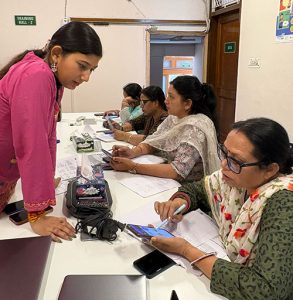 PASS Plus is a home-based and evidence-based intervention adapted and expanded from the UK Preschool Autism Communication Therapy (PACT) for community delivery by non-specialists. It aims to improve communication and social interaction through play-based strategies, while also supporting caregiver wellbeing.
PASS Plus is a home-based and evidence-based intervention adapted and expanded from the UK Preschool Autism Communication Therapy (PACT) for community delivery by non-specialists. It aims to improve communication and social interaction through play-based strategies, while also supporting caregiver wellbeing.
Across the sites, PASS Plus will be delivered by non-specialist workers embedded in the health care system, or by trained counsellors. For example, within India, Anganwadi workers (AWWs) and Accredited Social Health Activists (ASHAs) will deliver sessions to families.
Sangath and Manchester have developed a competency-based curriculum to support non-specialists to learn and deliver this intervention under supervision. Sangath Master Trainers supported country site PASS Plus Training leaders to achieve competency, who then went on to train the counsellors or non-specialist workers at their sites. Training is through classroom-based learning, mock session practice and an internship to experience real-world delivery.
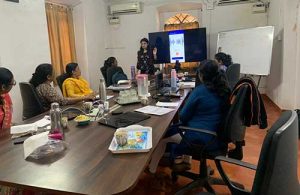
Within India and Sri Lanka, the plan is to provide interventions to 40 families. Interventions will be provided to 30 families in Nepal. Intervention sessions are supervised by leads and in peer groups to ensure quality of delivery to optimise the impact of the intervention.
In India, PASS Plus will be provided via an app. This has been developed specifically for NAMASTE India, with the assistance of our technical partner, Dimagi. There is ongoing feedback being provided to support the process.
WHO-Caregiver Skills Training (WHO-CST)
The WHO-CST is a low-cost, evidence-based programme from the World Health Organization that helps caregivers support children’s development.
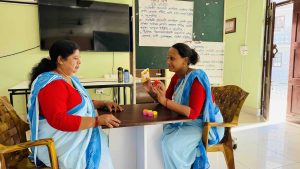 The CST consists of nine group sessions and three individual home visits, and focuses on training the caregiver on using everyday play and home activities and routines as opportunities for enhanced interaction and participation, development and learning.
The CST consists of nine group sessions and three individual home visits, and focuses on training the caregiver on using everyday play and home activities and routines as opportunities for enhanced interaction and participation, development and learning.
Similar to the PASS Plus intervention, the delivery of the WHO-CST intervention will be conducted by non-specialists who have been trained as part of the NAMASTE programme. Master trainers at each site have undergone an extensive training programme to achieve competency and fidelity in the intervention.
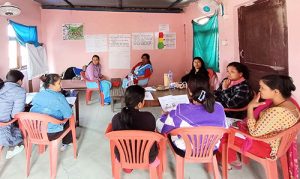 The master trainers have subsequently trained non-specialist facilitators at each location, who will deliver the sessions to families. To ensure continued fidelity of the interventions, refresher sessions will also be provided to the facilitators throughout the duration of the project.
The master trainers have subsequently trained non-specialist facilitators at each location, who will deliver the sessions to families. To ensure continued fidelity of the interventions, refresher sessions will also be provided to the facilitators throughout the duration of the project.
